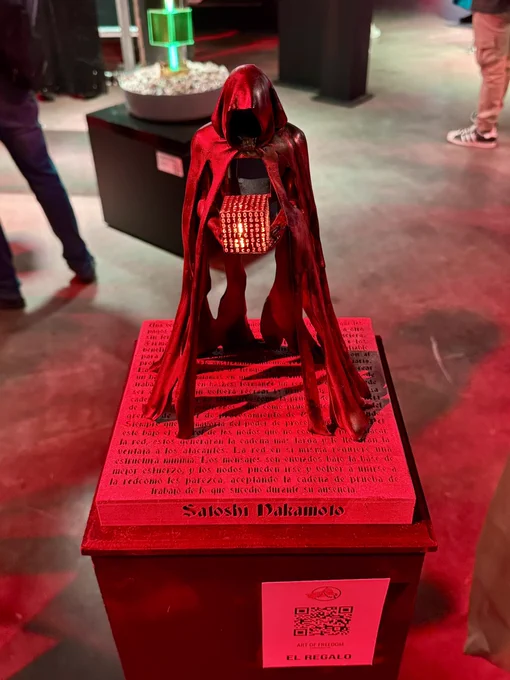chaotic polymath @class_lambda @ergodicgroup ∞ views are from my subconsciousness @notgeeny616
Joined November 2020
- Tweets 6,552
- Following 4,264
- Followers 3,832
- Likes 21,902
On today’s episode of Buenos Aires deepest psychological AND physical torture lore: no one uses dishwashers.
Prepare for your hands to dry up like raisins.
Only thing i found interesting was this group who give education and grants to build on bitcoin, check them out! @libdesatoshi
yasemin retweeted
we’re gonna start producing @ethrex_client merch now that we have a new cool logo.
who wants a shirt or stickers ?
yasemin retweeted
The way people talk to each other says a lot about how power works.
In Brazil you hear “Você sabe com quem está falando?” / “Do you know with whom you are talking?”,the classic phrase of someone reminding you of your place. Authority there flows smoothly from top to bottom, even dictatorship was organized.
In Argentina the answer is “¿Y a mí qué me importa?” / “Why the hell should I care?” a middle finger disguised as a sentence. It mocks authority but still admits it exists. Our authoritarianism was always more chaotic, more personal, less institutional.
How we speak to waiters, cops, or bosses mirrors how our countries relate to power. Brazil built hierarchy into manners. We built rebellion into everyday language.
That difference also shows up in Ethereum. Ethereum created an incredible technology and social layer, but also a culture that avoids talking about power openly. On the surface, conversations are polite, underneath, people are constantly backstabbing each other. There’s authority, but it’s hard to see from the outside who is calling the shots.
We’re closer to the Linux, OpenBSD, and Bitcoin way of doing things. We believe debates about power and politics should happen in public.
That’s why we @class_lambda push back sometimes. Some people expect us to kneel just because they control big money or social clout. Friends warn us: “Be careful, that guy has billions” or “he’s close to Y.”
Our answer is simple: “¿Y a mí qué me importa?” / “Why the hell should I care?” We only respect scientific discovery and engineering delivery.
The @ethrex_client dinosaur 🦖 doesn’t care about who you are. He just wants to eat fiat.
yasemin retweeted
Not hurting people’s feelings should not be the basis for morality.
The goal of life is to grow. Not to feel comfortable.
yasemin retweeted
🚀 Ethrex Release V6.0.0
This release introduces major performance optimizations across the execution pipeline, delivering up to 3× faster processing under typical workloads.
Improvements span database access, caching, and background execution paths, significantly reducing block execution times.
In parallel, L2 nodes now feature complete blob support under Fusaka.
1/2






















